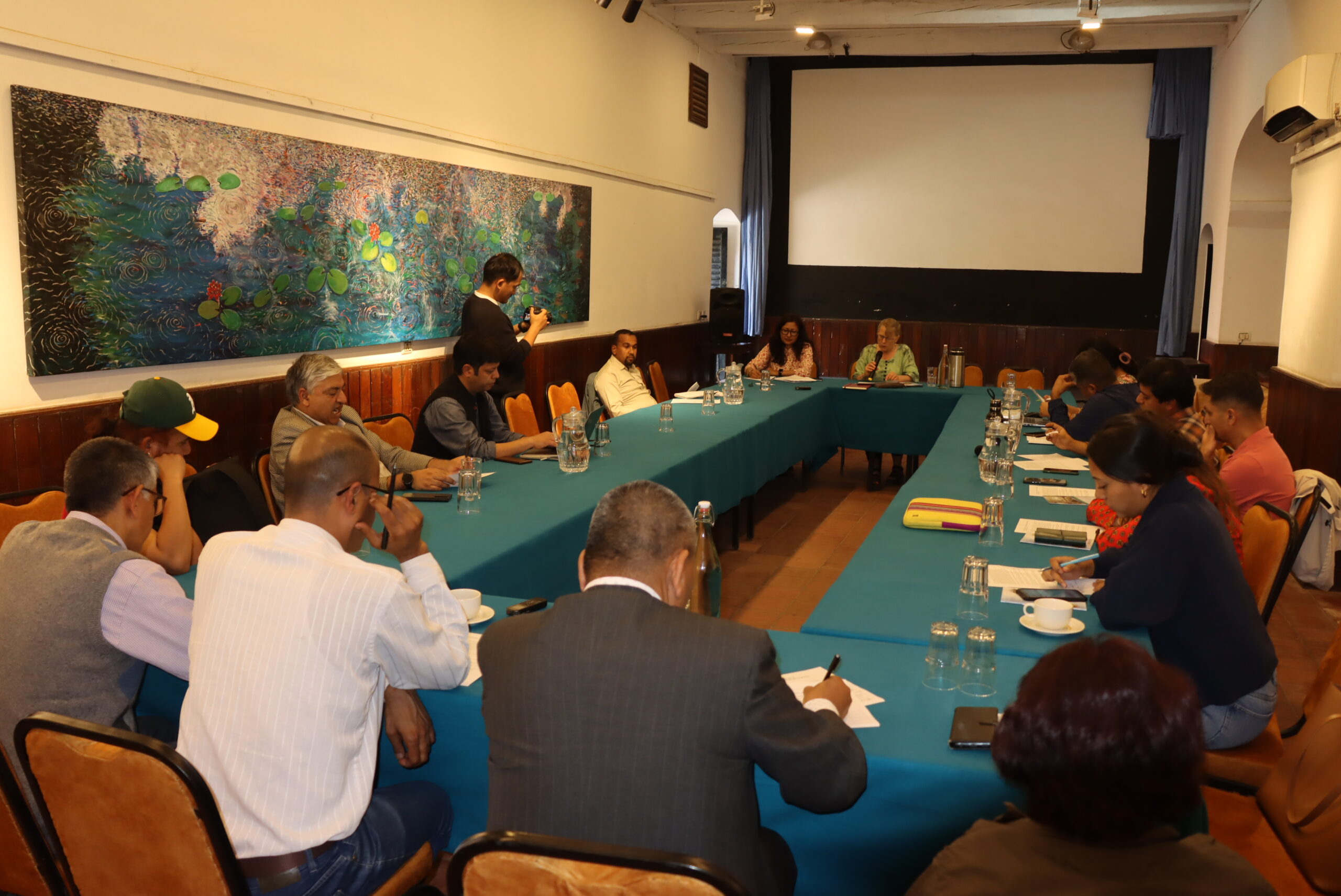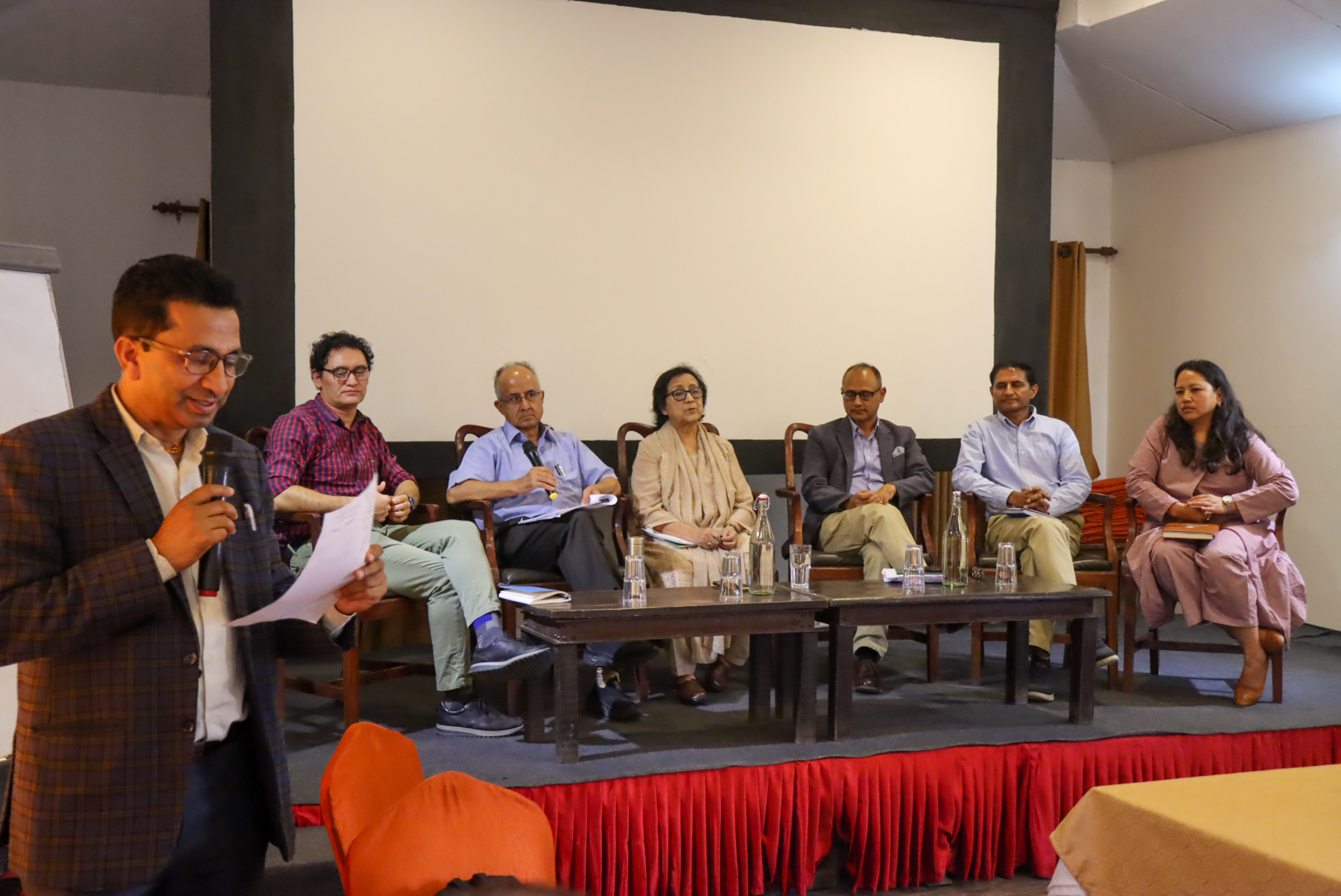Southasia Institute of Advanced Studies (SIAS) organized a review meeting of researchers/academicians on 29th April, 2022 with the aim to critically and collectively review the “National Water Supply, Sanitation and Hygiene (N-WASH) policy” drafted by the Ministry of Water Supply and provide consolidated feedback through a single window. Researchers and academicians representing various institutions such as Tribhuvan University, Kathmandu University, independent researchers, non-profit making national and international research institutes and PhD researchers participated in the review meeting both virtually and in-person to provide their feedback on the policy draft. Some researchers who could not join the meeting also shared their reflections and suggestions via email.
The meeting was moderated by Dr. Anushiya Shrestha, Research Director, SIAS who explained the brief background for organizing the joint review meeting followed by the presentation from Ms. Suchita Shrestha, Researcher, SIAS on four major themes namely a) water conservation b) water governance c) growing water conflicts and inequitable access and d) building risk resilient urban-water system of the policy draft that reflected the viewpoint of SIAS’s learning and evidence collected from research at different time frame across various regions of Nepal.
The presentation was followed by a discussion session moderated by Dr. Dil Khatri, Executive Director, SIAS where each of the participants were given time to share their feedback and comments to contribute to the collective policy feedback. Researchers and academicians claim that the water resources are drying up due to the rampant urban expansion and changing climate. They also provided the suggestion that the conservation concept should be broadened to basin-level rather than limiting it to the source protection only. As studies have shown that almost 70% of the spring has already either dried or are on the verge of drying up, the policy should encourage ‘source restoration’.
The participants highlighted that the water management practices should go beyond the administrative boundaries and proposed the formation of hydrological basin-level water management, an institution, which is taken as a successful practice in many parts of the world. Apart from the four major themes, the participants also raised some other important issues, such as gender and social justice, inclusion, governance, and service provision.
The feedback collected from the interactive meeting will be compiled and a collective comprehensive report will be submitted to the Ministry of Water Supply.




